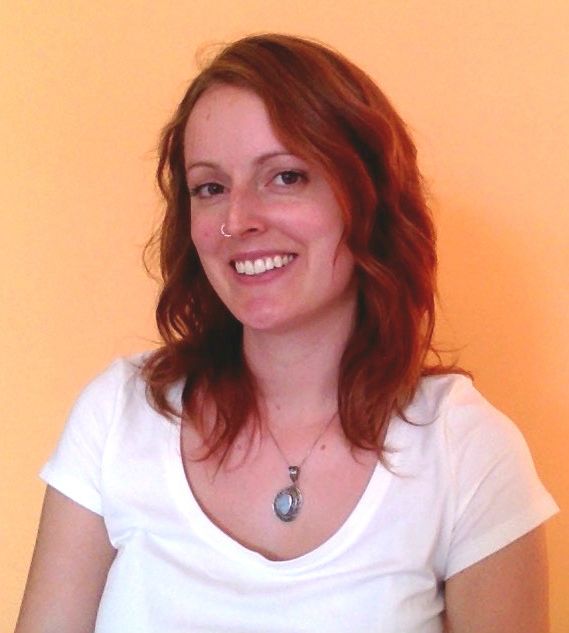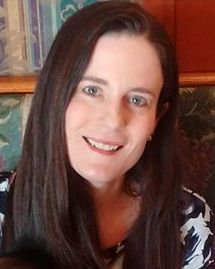Speech-Language Pathology
 MHSc
MHSc
Student’s Name: Krista Anastasia Howarth
Program: Master of Health Science in Speech-Language Pathology
Krista recently graduated from the Master of Health Science in Speech Language Pathology Program at the University of Toronto in summer 2015. Through academic and clinical training, she has gained skills in the assessment, treatment, and management of a variety of communication, speech, and swallowing disorders. Her clinical placements spanned multiple environments and clinical populations. They included managing swallowing and communication difficulties for adults in acute care, treating communication disorders for older adults in rehabilitation units, treating speech disorders for children in a school board, and providing auditory rehabilitation for children and adults with hearing loss.
Throughout her degree, she was an active volunteer with the Ontario Association of Speech Language Pathologists and Audiologists (OSLA) where she participated in advocacy events. She was also a student representative for the GLSE Graduate Curriculum Committee at the Faculty of Medicine for 2014-2015.
Krista’s clinical training and volunteer experiences have motivated her to build her career working in the community helping families meet their communication and swallowing goals. Prior to completing her Masters, Krista worked with children with communication difficulties in Quebec and British Columbia. Having now experienced working within 3 different healthcare systems, she intends to continue her advocacy work and develop her long-term plan to improve SLP service access and delivery in Ontario and Canada.
Krista was the recipient of the SAC Student Excellence Award in 2015 for her graduating class at U of T, an award that is given to a student judged to be the best all-round future professional. In addition, she received the Tavistock Trust Aphasia Prize for the class of 2015 for her performance in her Aphasia course, the Harmonize for Speech Academic Excellence Award for 2013-2014, and the Glennie/Cizman Scholarship in Speech Language Pathology in 2013-2014 and 2014-2015, which recognized her work experience prior to her Masters degree.

PhD
Student's Name: Heather Leslie Irene Flowers, MEd, MHSc, PhD
Supervisor: Dr. Rosemary Martino, MA MSc PhD
Canada Research Chair (Tier II) in Swallowing Disorders
Associate Professor, Department of Speech Language Pathology, University of Toronto
Affiliated Scientist
Health Care and Outcomes Research
Toronto Western Research Institute, University Health Network
PhD Thesis: The Incidence, Co-occurrence, and Predictors of Dysphagia, Dysarthria, and Aphasia after Acute Ischemic Stroke
PhD Research:
Heather Flowers is a Speech-Language Pathologist, with training at the University of Toronto for her Master of Health Science (2004) and subsequent Doctor of Philosophy (2014). Heather’s PhD dissertation included three research studies directed at elucidating the incidence, co-occurrence and neuroanatomical predictors of swallowing, speech and language impairments (dysphagia, dysarthria, and aphasia) after acute ischemic stroke.
Through her PhD research, Heather used various information sources and methodologies to demonstrate a high frequency and co-occurrence of dysphagia, dysarthria, and aphasia and to model clinical and neuroanatomical predictors of their presence. The first study involved merging stroke data from a large national database with a local chart review to ensure stability and best capture of the three impairments early after stroke onset. The second study involved Cochrane systematic review methodology to identify MRI-based predictors of acute dysphagia from the existing literature. It involved a comprehensive search of databases, journals, conferences, and the grey literature, with review of articles in any language. With extensive collaboration from neurology and neuroradiology, the third study involved quantifying acute and chronic neuroanatomical predictors of dysphagia, dysarthria, and aphasia using the MRI scans from patients in the initial chart review.
Key findings from the three studies include:
Incidence estimates for dysphagia, dysarthria, and aphasia of 44, 42, and 30 percent, respectively
co-occurrence of all three impairments in 10 percent of ischemic stroke patients
a multifaceted predictive model for dysphagia including i) increasing age, ii) moderate brain atrophy, and iii) acute lesions in the medulla, pons, internal capsule, and insula.
a predictive model for dysarthria including i) decreasing acute lesion volume (therefore more focal lesions) and ii) acute lesions in the pons, internal capsule, and insula
a predictive model for aphasia including i) increasing acute lesion volume and ii) acute left hemisphere lesions to the thalamus, insula, and multiple areas of the superficial middle cerebral artery territory.
N. B. Additional voxel-based lesion symptom mapping analyses are currently underway for the third study, to elucidate more discrete neuroanatomical lesion sites that predict the presence and/or co-occurrence of dysphagia, dysarthria, and aphasia.
Taken together, findings support the need for early routine evaluations after stroke onset and for increased efforts to develop targeted interventions for stroke survivors with multiple impairments. Heather’s PhD research will facilitate the development of clinical protocols for early identification and management of dysphagia and concomitant communication impairments.
Select Recognitions and Awards
Recent recognitions and awards include the Head and Neck Cancer Alliance Best Poster Award in 2014 (second author; 22nd Annual Dysphagia Research Society Meeting), the best PhD Poster Award in 2013 (first author; Graduate Department of Rehabilitation Sciences Research Day), Canadian Stroke Network travel awards (2013, 2012), the Queen Elizabeth II Ontario Graduate Scholarship in Science and Technology (2011-2012), and the Heart and Stroke Foundation Ontario Graduate Scholarship in Science And Technology (2009-2010).
Heather has eight publications in peer-reviewed journals (featured below) as well as multiple contributions to collective works, published abstracts, and invited presentations.
Select Publications:
Shaw, S., Flowers, H., O’Sullivan, B., Hope, A., Liu, L.W.C., & Martino, R. (2015). The Effect of Prophylactic Percutaneous Endoscopic Gastrostomy (PEG) Tube Placement on Swallowing and Swallow-Related Outcomes in Patients Undergoing Radiotherapy (with or without Chemotherapy) for Head and Neck Cancer. Dysphagia, 30, 152-175.
Flowers, H., Flamand-Roze, C., Denier, C., Roze, E., Silver, F.L., Rochon, E., Skoretz, S.A., Baumwol, K., Burton, L., Harris, G., Langdon, C., Shaw, S., & Martino, R. (2015). English Adaptation, International Harmonisation, and Normative Validation of the Language Screening Test (LAST). Aphasiology, 29, 214-236.
Martino, R., Flowers, H., Shaw, S. M., & Diamant, N.E. (2013). A Systematic Review of Current Clinical and Instrumental Swallowing Assessment Methods. Current Medicine and Physical Rehabilitation Reports, 1, 267-279.
Flowers, H., Silver, F., Jiming, F., Rochon, E. & Martino, R. (2013). The Incidence, Co-occurrence, and Predictors of Dysphagia, Dysarthria, and Aphasia after First-Ever Acute Ischemic Stroke, Journal of Communication Disorders, 46, 238-248.
Flowers, H., Skoretz, S.A., Streiner, D., Silver, F. & Martino, R. (2011). MRI-Based Neuroanatomical Predictors of Dysphagia after Acute Ischemic Stroke: A Systematic Review and Meta-Analysis. Cerebrovascular Diseases, 32, 1-10.
Skoretz, S., Flowers, H., & Martino, R. (2010). The Incidence of Dysphagia Following Endotracheal Intubation: A Systematic Review. Chest, 137, 665-673.
Bressmann, T., Flowers, H., Wong, W., & Irish, J.C. (2010). Coronal View Ultrasound Imaging of Movement in Different Segments of the Tongue during Paced Recital: Findings from four normal speakers and a speaker with partial gossectomy. Clinical Linguistics and Phonetics, 224, 589-601.
Flowers, H., Girolametto, L., Weitzman, E., & Greenberg, J. (2007). Promoting Early Literacy Skills: Effects of Inservice Education for Early Childhood Educators. Journal of Speech-Language Pathology and Audiology, 31, 6-18.
Future Plans:
Heather plans to further develop her research experience through postdoctoral work at the Université de Montréal under the supervision of Dr. David McFarland. She will have the opportunity to engage in multiple lines of research investigating the physiological and neurodevelopmental basis for cross-system interactions. Two areas of particular interest to her include investigating i) the coordination of respiratory/swallowing control in healthy adults and in those with swallowing impairments and ii) the expression of feeding/swallowing behaviours and associations with speech and language development in infants and young children.
Over the long-term, Heather anticipates advancing the research from her PhD thesis and postdoctoral work to derive early management strategies and evidence-based targeted interventions for individuals with impairments in multiple overlapping systems.